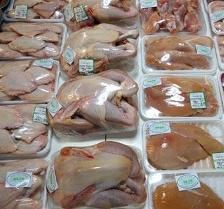Food recall analysis completed for the USA, UK and Ireland

As the increasing number food scares causes consumers to question the safety of everyday food items, researchers at Queen’s University Belfast have completed the first ever analysis of all the food recalls announced in the USA, UK and Ireland over the last decade.
The research, by Dr Antony Potter at Queen’s Centre for Assured and Traceable Foods (ASSET) identified 2,439 food recalls over the past ten years – including the recall of 380 million eggs in the USA in 2010 following a Salmonella outbreak at a farm in Iowa, and the 2008 pork recall in Ireland, which affected export markets in 21 countries around the world.
The research was discussed during The Food Integrity and Traceability Conference which took place at the University (21-24 March).
Dr Potter said: “The number of food scares and product recalls has increased significantly in the past decade. Until now, however, there has been no international database to measure trends in food recalls.”
“Our detailed analysis of recalls in the UK, Ireland and USA begins to fill that gap. It outlines how the frequency and severity of recalls has increased over the past ten years, accompanied by significant financial implications for food producers. The 2008 pork recall in Ireland, for example, cost the Irish economy an estimated €125 million.
Of the product recalls we identified, 68 per cent were detected during routine or spot testing by regulatory bodies, and only 215 were detected by the company in question. Around one fifth (21%) were in the meat industry, 12% in processed foods and 11% in fruit and vegetables.
Most recalls (56%) resulted from operational mistakes, such as incorrect labelling, the presence of an undeclared ingredient, or contamination during the production process. While biological causes, such as the detection of Listeria, Salmonella and E Coli were also a factor, a significant number of food safety alerts were actually due to food fraud and corruption by suppliers further down the supply chain. This highlights the need for food producers to invest in ensuring the traceability of their products back through the supply chain,” he stated.












